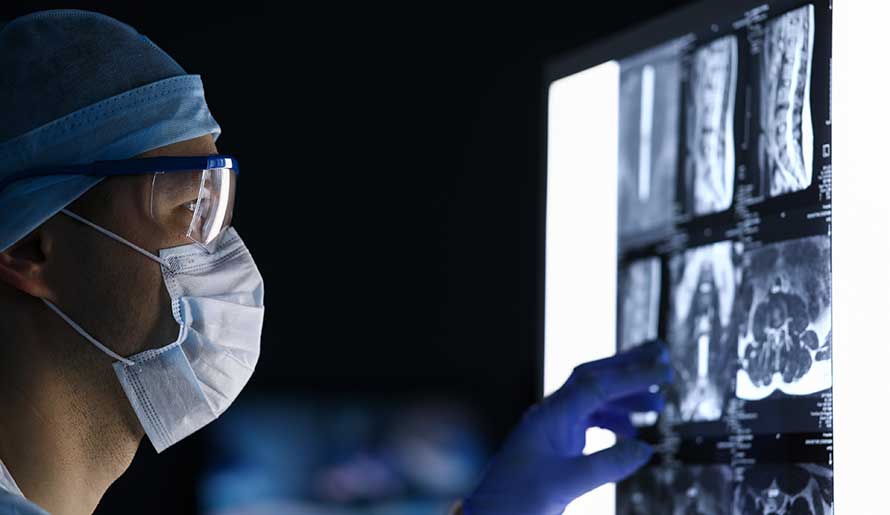Brain Cancer Screening

At this time, there are no brain cancer screening methods that can be used to accurately detect a brain tumor before a person starts to experience symptoms. Oncologists can keep a watchful eye on an existing cancer if they believe it is likely to spread to the brain, but it is extremely difficult to screen for primary brain cancers, which tend to develop without producing any noticeable warning signs.
Screening options for high-risk individuals
Although researchers don’t yet have a way to screen people for primary brain cancers, they do have options for people who have a high risk of developing brain cancer. This includes people who have a diagnosed immune system disorder or a genetic condition such as:
- Neurofibromatosis (type 1 or type 2)
- Tuberous sclerosis
- Von-Hippel-Lindau disease
How to get tested for brain cancer
Even for high-risk individuals, however, there is no single brain cancer screening test that can predict his or her future cancer risk with complete accuracy. A physician may advise a patient who has one of these risk factors to schedule regular physical exams and imaging scans. If a potential abnormality is detected, additional diagnostic tests may then be performed, such as:
- Imaging tests – Magnetic resonance imaging (MRI) tests and computed tomography (CT) scans are often used to detect brain cancer in a patient.
- Biopsies – Needle biopsies are recommended for tumors located in sensitive areas of the brain or in hard-to-reach areas. A biopsy can also be done during an operation to remove the brain tumor. The tumor’s tissue will be closely inspected under a microscope to determine if it's cancerous.
A patient with test results that indicate a brain tumor has many treatment options available to him or her. Treatment for this cancer largely depends on the patient’s overall health and the type, size and location of the tumor. Neurosurgery, radiation therapy, chemotherapy and clinical trials are some of the most common treatment options.
Moffitt Cancer Center’s approach to brain cancer screening
At Moffitt Cancer Center, we offer some of the most advanced diagnostic tests for primary and metastatic brain cancers. Our neurosurgeons can perform a craniotomy or another type of surgical biopsy to assess a suspicious mass for cancerous characteristics. If resection is necessary, they can remove the tumor with minimal damage to the surrounding tissues. We also utilize a wide range of imaging techniques, including PET scans and functional brain tumor MRIs, as well as electroencephalogram (EEG) procedures to help assess potential brain cancers.
Patients don’t need referrals to meet with Moffitt’s brain cancer team. Complete a new patient registration form or call 1-888-663-3488 to request more information about brain cancer screening and our effective diagnostic tests.
